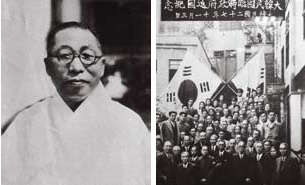Online Event "All about Korean Special Day" with the King Sejong Institute Center in Indonesia
On
Friday April 21, 2021, the King Sejong Institute Center in Indonesia held an
event, namely "Special Sundays in Korea", this event aims to
introduce various kinds of special days in South Korea, this event is held
online virtual, in the final session of the event. KSIC also provides a quiz
about this event, in an explanation of Korean special day sundries including:
Seotdal
Geumeum, Seotdal Geumeum is the eve of Chinese New Year and is also known as
the last day of the year. Meanwhile, the night before the new year is usually
known as jeya or jeseok. Jeseok, is defined as the night of liberation. Usually
people throw away old calendars and replace them with new ones. On this day,
people usually stay up late until dawn to welcome the new year.
Seollal,
In South Korea, Chinese New Year is known as Seollal. This year, Seollal falls
on February 12-14. This means that South Koreans have a three-day weekend to
celebrate with their loved ones. Seollal is a time for Korean people to return
to their hometowns to honor their ancestors, as well as meet family members.
During Seollal, Koreans usually perform ancestral rituals, play folk games, eat
traditional food, listen to stories, and chat late into the night. However, in
recent times, there has been a shift away from traditional celebrations,
meaning more is done for those who spend Seollal alone. Traditionally, they usually
prepare their New Year's snacks by eating "tteokguk" and
"jeon" for breakfast.
"Tteokguk"
is rice cake soup, while "Jeon" is wheat flour on the side. Then,
they perform an important ritual called 'sebae'. Usually the sebae gesture is
done for younger people and has to bow deeply to the older person while saying
happy new year. When sebae they usually also wear hanbok which is Korean
traditional. When bowing, we have to say 'saehae bok mani badeuseyo' which
means 'Have a lucky new year'.
After
doing the 'saebe' the parents say 'I hope you stay healthy this year' or 'I
hope you get married this year' to their children. They will then give an
amount of money, known as 'sebaetdon' to their children. Not only that, they
also perform the 'charye' ritual, or ancestral ritual, in the morning and spend
time playing games. Korean Seollal celebrations are indeed on the rise. But one
thing for sure, life in Seoul City becomes more quiet during the long vacation
period.
Chuseok,
Chuseok means "Autumn Night" in Korean and is a harvest festival that
lasts for three consecutive days.
Chuseok,
similar to American Thanksgiving, is the biggest holiday in Korea. Chuseok is
celebrated on the 15th day of the 8th month of the Chinese calendar. During
Chuseok, Koreans visit their ancestral graves or hold ancestral memorial
services in homes. Usually, at the food table, each family always makes
traditional food such as songpyeon, rice cakes with special filling steamed on
pine needles, and rice wine. Korean pancakes and fresh fruits are also common
during Chuseok.






Komentar
Posting Komentar